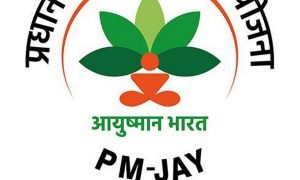New Delhi (India), October 30: The first thing you would think of when you hear the term ‘credit card’ is ‘debt’ and ‘bills and payments’. It doesn’t have the best reputation when it comes to financial terminology. But the simple fact is if you understand how a credit card works, then it can be an excellent tool for managing finances when used responsibly.
Of course, the struggle to understand if a credit card can be a burden or a boon is only natural. Simply put, if understood and used correctly, a credit card is a great way to give your financial management an edge. And while the most basic principle of its use is to tap/swipe and go, there’s a little bit more to it than that.
Let’s shed some light on just how credit cards work here in India with a little bit about their benefits and features.
Key elements of a credit card
Knowing how credit cards work means understanding all the components that make up this important piece of plastic.
- Credit card number – Almost always a 16-digit number, it’s a unique identifier with its own built-in security features.
- Expiry date – Each card is valid only for a specific amount of time.
- CVV – The three digits at the rear of the card are probably the most important code you’ll ever know. Think of it as a secret handshake between you and your bank.
- Other features –– the signature panel lets you personalise the card to avoid misuse,- the embedded chip prevents unauthorised access and fraudulent use,- the magnetic strip contains your personal information that is accessed when swiped,- the hologram (difficult to duplicate) lets merchants ID cards.
Do you really need a credit card?
There’s no wrong answer, and the question warrants serious consideration. It depends on what you would use it for and what benefits it would give you.
Read More: Petrol, Diesel Fresh Prices Announced On November 5: Check Rates In Your City Here
The typical uses of a credit card
- Buying on credit – The most obvious use is to buy things on credit without the need to pay for them immediately.
- Highly accepted mode – Paying with a credit card is widely accepted, online or offline. It’s why card issuance went from just 29 million cards in 2017 to a whopping 62 million in 2021.
- Easier than carrying cash – Using a card can be so much simpler than carrying cash around and, naturally, far more secure.
- Keeping track of expenses – With regular statements and bills, you can track how much you’re spending and when you need to make payments.
Having a credit card has its benefits
- Emergency funds – A credit card can be a lifesaver in a financial emergency; having that extra funding at your disposal can make a huge difference.
- Building credit history – When used responsibly, it can positively affect your credit history. This is vital when you need a loan with good terms and a better interest rate.
- Convenience in payments – From online shopping to paying bills and your rent, a credit card offers unparalleled convenience.
- Converting to EMIs – You can convert purchases to smaller amounts and pay them off with the always handy EMI option, which means not having to pay the full amount at one go.
- Cashbacks, rewards and more – Each time you use your credit card, you can get cashback and collect reward points to use later on. You can also get discounts and other benefits as well.
But not all credit cards are created equal. Choosing a trusted provider, like IDFC FIRST Bank, gives you the confidence to spend wisely and reap the benefits. You can enjoy exclusive reward programs, travel perks, special offers, and much more. With a range of cards, such as the FIRST WOW! Credit Card, FIRST Select Credit Card, FIRST Millennia Credit Card, etc., designed for various requirements, make a choice that suits your needs.
Read More: How Can NRIs File Form 10F Without Obtaining PAN Number?
How credit cards work
- – In a nutshell, credit cards let users spend or “borrow” money from the card issuer, up to a set limit.
- – Credit cards usually provide a payment period of up to 45 days, during which the issuer charges no interest if the outstanding balance is paid in full. However, making just a partial payment (minimum amount) by the due date will incur interest.
- – You can use your credit card for online or offline purchases.
Some examples of what you can use your credit card for –
- College fees – You can pay your tuition fees with your credit card and repay either in full or in EMIs.
- Shopping – With credit cards, shopping for almost everything you want/need has become more rewarding than ever. You can earn unlimited cashback and reward points and grab great deals too.
- Large purchases – Buying big-ticket items like a new mobile phone, a washing machine or furniture becomes seamless, especially with the ability to repay in EMIs.
- Rent payments – Use the auto-debit feature on an IDFC FIRST Bank Credit Card to make sure your rent payments are always on time. Furthermore, you can earn cashback and even reward points on rent payments.
By understanding the finer details of how credit cards work, you can master the art of financial management.
Credit Card Security
Keeping your card safe should be a priority, although there are plenty of security measures built in.
1. Your personal identification number (PIN) is the key to your card. Changing it regularly and keeping it confidential ensures your financial information remains secure.
2. As an added layer of security, the 3-digit CVV is also required in most cases to ensure a transaction goes through.
3. Like everything else, you must be on the lookout for scams. Keep in mind that banks and other financial institutions will not ask for your card number or security codes.
When you’re using IDFC FIRST Bank Credit Cards, you can rest assured that sophisticated security measures and prompt customer support for emergencies are always in place.
Applying for an IDFC FIRST Bank Credit Card is easy
Now that you know how credit cards work, it’s time to consider which one would best meet your needs. Here’s what you need to know about applying for an IDFC FIRST Bank Credit Card.
To do so, you need to be 18 years or older, meet some specific income requirements, and have a good credit score. That said, should your credit score be a little below the required limit, you can always consider the IDFC FIRST BANK FIRST WOW! Credit Card. Being a secured credit card backed by a fixed deposit with the bank, it is available even to those with less-than-stellar credit scores.
In conclusion
As long as you responsibly use your card, you will always be able to put it to the best use. Consider the different credit cards offered by IDFC FIRST Bank and take control of your financial future today
Disclaimer: This article is a paid publication and does not have journalistic/editorial involvement of Hindustan Times. Hindustan Times does not endorse/subscribe to the content(s) of the article/advertisement and/or view(s) expressed herein. Hindustan Times shall not in any manner, be responsible and/or liable in any manner whatsoever for all that is stated in the article and/or also with regard to the view(s), opinion(s), announcement(s), declaration(s), affirmation(s) etc., stated/featured in the same.





































